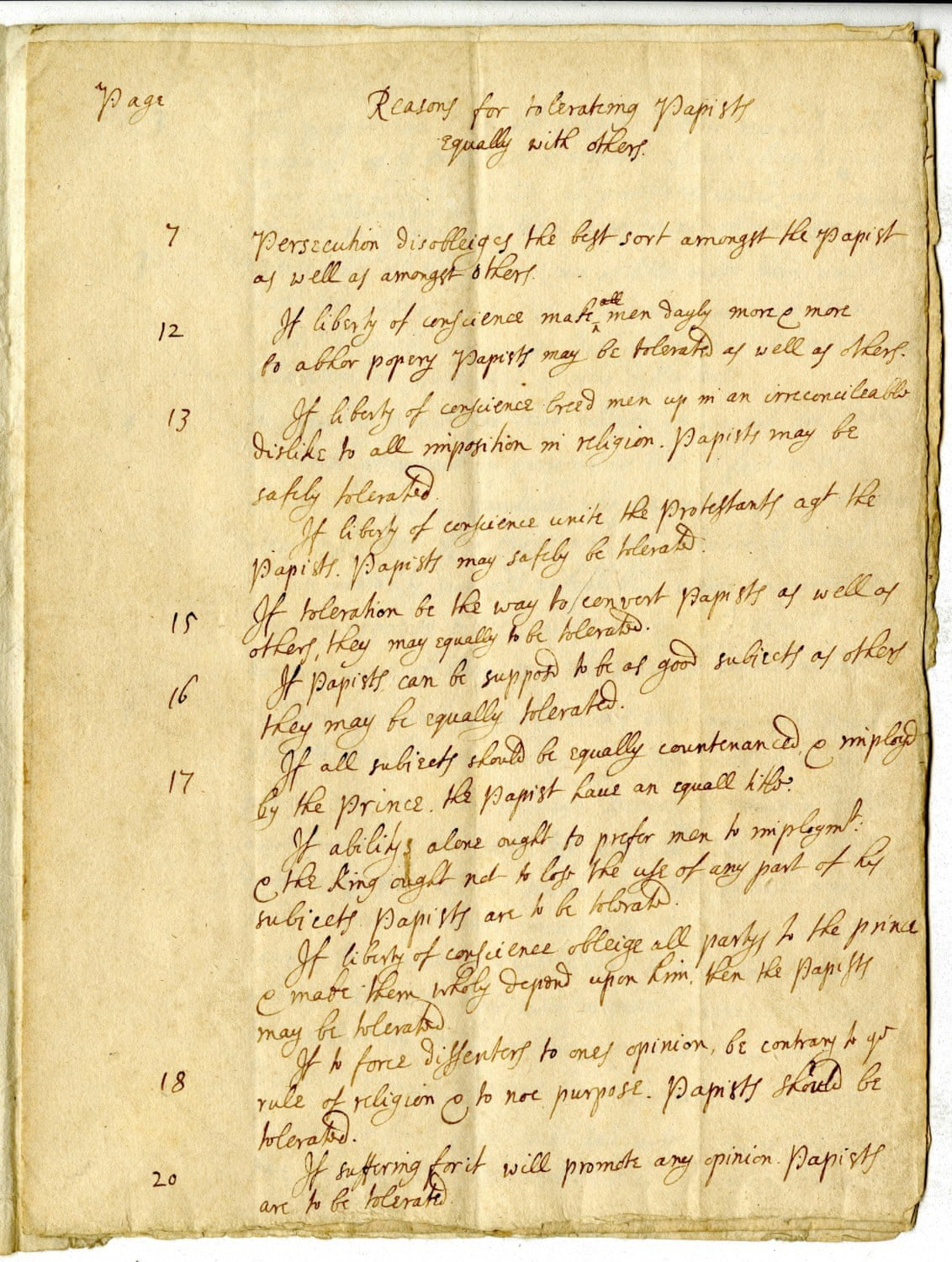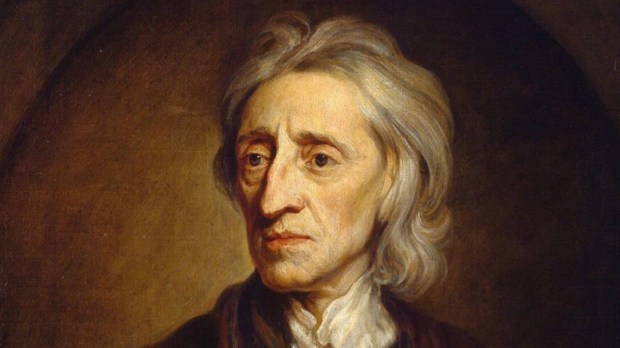Lenten Campaign 2025
This content is free of charge, as are all our articles.
Support us with a donation that is tax-deductible and enable us to continue to reach millions of readers.
English philosopher John Locke is known for, among other things, a work called “A Letter Concerning Toleration.” The letter influenced James Madison’s thinking on the issue of separation of church and state in his work on the U.S. Constitution.
But Locke was famously known for not tolerating one religion in particular—the Roman Catholic one.
He lived from 1632 to 1704, a time period that included the reign of the Catholic King James II and struggles over religious tolerance.
Now, however, an early Locke manuscript has been unearthed that is leading to a rethinking of the man and his attitude toward Catholicism. The manuscript’s very title, “Reasons for tolerateing Papists equally with others,” is turning heads.
Dated 1667-1668, the manuscript had been owned by the descendants of one of Locke’s friends. In the 1920s, it was sold at auction to a book dealer, the Guardian reported. “From there, it went into private collections until it was donated to St John’s College, Annapolis, in the latter half of the 20th century. It lay unstudied in archives until Locke scholar J.C. Walmsley noticed a reference to it in a 1928 book dealer’s catalogue, and raised an eyebrow,” the paper said.

“This [title] sounded entirely unlikely to me,” Walmsley told the Guardian. “Locke was known for not extending his toleration to Catholics, and I checked through the online listing of Locke manuscripts to see if it even remotely matched a description of any known Locke manuscript. It did not. This suggested one of two things; that the manuscript described was misattributed to Locke—which happens more often than might be supposed—or there was an unknown Locke manuscript which had some very surprising content.”
Walmsley said the manuscript shows Locke to be “much more tolerant in certain respects than was ever previously supposed.”
The Guardian explained that in Locke’s better known work, “A Letter Concerning Toleration,” the philosopher argued for tolerance “at a time when religious uniformity was enforced by law in the wake of the Reformation.”
“In the newly discovered manuscript, Locke first argues impartially for tolerating Catholics, and [only] secondly against their toleration,” the paper said. In Locke’s own words:
“If Papists can be supposd to be as good subjects as others they may be equally tolerated. … If all subjects should be equally countenanced, & imployd by the Prince. the Papist[s] have an equall title.”

